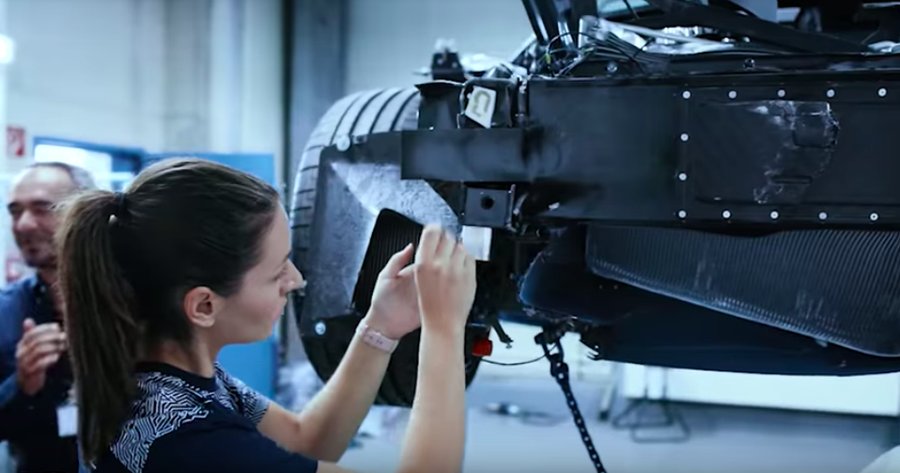1,914-hp Rimac C_Two drives straight into a wall as production nears

The electric, 1,914-horsepower C_Two that Rimac unveiled at the 2018 edition of the Geneva Motor Show is well on its way to becoming a production model. The Croatian automaker released a short video that gives a behind-the-scenes look at the on-going process of homologating the car.
Every new, street-legal car needs to be homologated. The process is time-consuming and expensive, and it's the same for every automaker. Rimac's limited-edition C_Two must comply with the same safety standards as the next-generation Volkswagen Golf. Rimac is consequently stuffing pre-production prototypes into walls on a regular basis to achieve the results it's after. Big automakers have an easier time absorbing these costs than small, niche manufacturers.
Rimac is putting itself through the trouble of homologation because it wants the C_Two to be street-legal in every major market around the world. The alternative would be to make the car a track-only model, and let owners in the United States, for example, take advantage of the show or display regulations to drive it on public roads a handful of times per year.
At least the firm doesn't have to worry about the wildly different emissions regulations enforced around the globe. The C_Two is fitted with four electric motors that draw electricity from a 120-kilowatt-hour battery pack to generate a total output of 1,914 horsepower and 1,696 pound-feet of torque. Range checks in at 404 miles on the optimistic NEDC cycle, the sprint from zero to 60 mph takes 1.8 seconds, and its top speed checks in at 258 mph.
Rimac promised to post updates as the homologation process continues. Production is scheduled to begin in 2020, but the 150-car production run has been sold out for over a year in spite of a base price pegged in the vicinity of $2.1 million.
Nouvelles connexes


